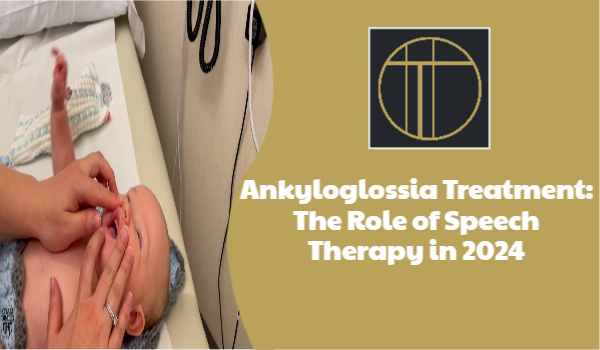Ankyloglossia, commonly known as tongue-tie, is a condition where the frenulum, a small piece of tissue connecting the underside of the tongue to the floor of the mouth, is too short or tight. This can restrict tongue movement, impacting speech, feeding, and oral hygiene. While surgical intervention is often considered the primary treatment, speech therapy plays a crucial role in managing and improving the effects of ankyloglossia.
Understanding Ankyloglossia
Ankyloglossia can manifest in various degrees of severity, ranging from mild to severe. Mild cases may not require treatment, while more pronounced cases can significantly affect a person’s quality of life. Symptoms of ankyloglossia include difficulty breastfeeding, speech impairments, dental problems, and oral hygiene challenges. Early diagnosis and intervention are essential for optimal outcomes.
The Impact of Ankyloglossia on Speech
Ankyloglossia can have a profound impact on speech development, particularly in children. The tongue plays a vital role in producing clear and articulate sounds. When tongue movement is restricted, it can lead to speech sound errors, such as lisping, slurring, or difficulty producing certain consonant sounds. Speech therapy can help individuals with ankyloglossia develop compensatory strategies to improve speech clarity and intelligibility.
Speech Therapy for Ankyloglossia
Speech therapy is a non-invasive and effective approach to managing the speech challenges associated with ankyloglossia. A qualified speech-language pathologist can assess the impact of tongue-tie on speech and develop a tailored treatment plan. Therapy typically involves a combination of exercises, techniques, and strategies aimed at improving tongue mobility, strength, and coordination.
The Role of Speech Therapy Post-Surgery
While surgery to release the tongue-tie can address the physical limitations, speech therapy is often recommended post-operatively to help individuals fully recover their speech abilities. Speech therapy can assist with re-educating the tongue muscles, refining articulation skills, and building confidence in speaking.
Conclusion
Ankyloglossia treatment has evolved significantly, with speech therapy emerging as a valuable component of comprehensive care. By addressing the speech challenges associated with tongue-tie, speech therapy can empower individuals to overcome communication difficulties and improve their overall quality of life. If you or your child is experiencing speech difficulties due to ankyloglossia, consulting with a speech-language pathologist is highly recommended.
Have you or someone you know been affected by ankyloglossia? Share your experiences and insights in the comments below.
Town Hall Dental offers comprehensive dental care, including assessment and treatment for ankyloglossia. Our experienced team can provide guidance and support throughout your journey.


